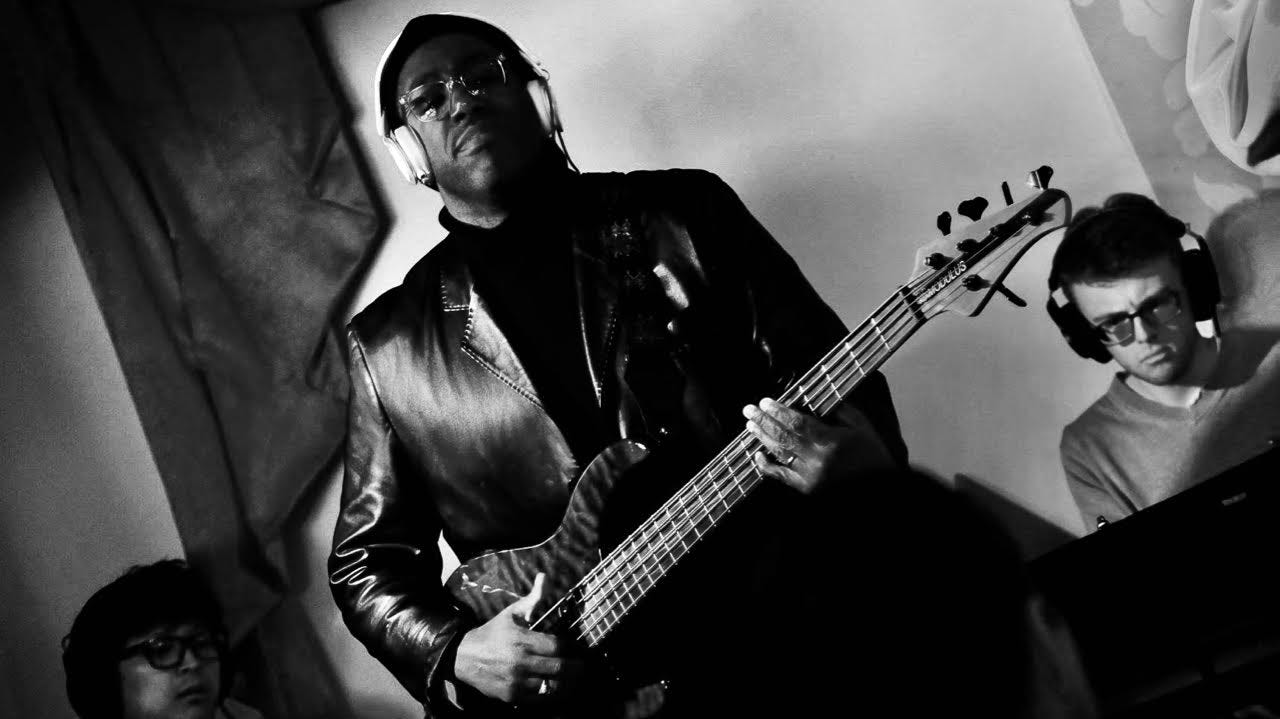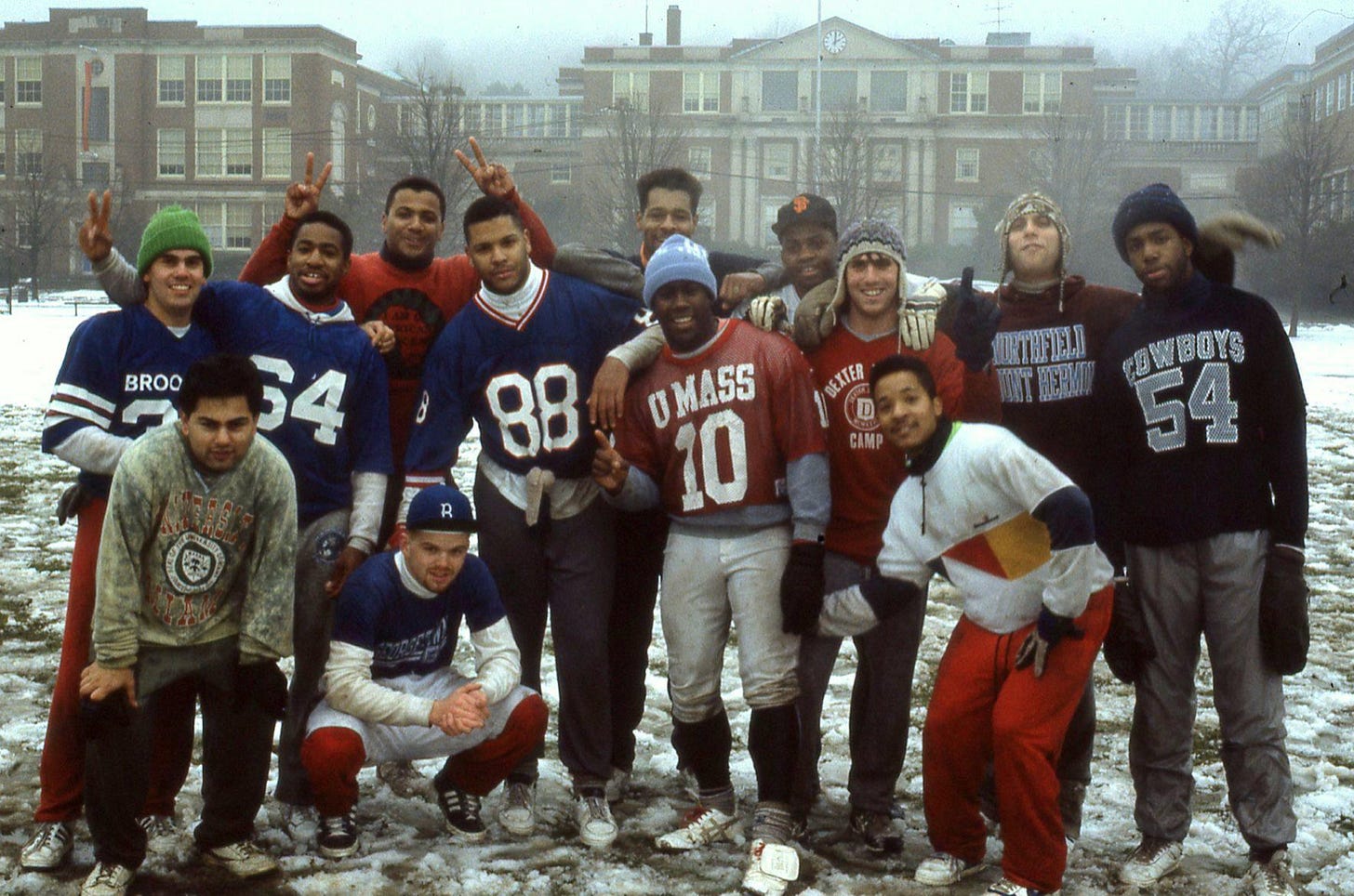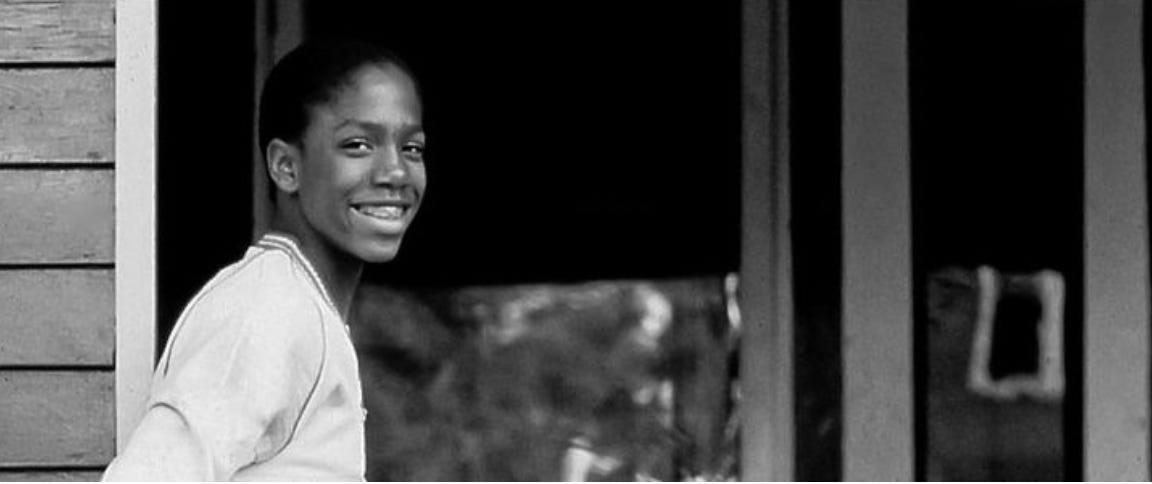Narrative Disruption
“YOU TRIED TO STEAL MY CAR NIGGER!” his gun focused on my temple. Blood flowing from my wound, dripping on the ground.

Teo Lee records “Narrative Disruption.” Photo by Raquel Tauler
People across the United States have been trying to figure out how to make a positive contribution during the upheaval about the systemic racism that has erupted since George Floyd’s murder in late May.
For childhood friend Teo Lee, the answer has been clear: he’s kept doing the musical and activism work he’s been engaged in for years.
Teo and I grew up together in Brookline, a comfortable Boston suburb, in the 70s and early 80s. His older brother Scooter, one of my closest friends, and I were in the same grade; Teo and my brother Mike were two years below us.
The Lee family has taught me about race in America for more than 40 years.
In fourth grade Scooter advocated for Malcolm X’s birthday to be a national holiday. I hadn’t heard of the slain African-America human rights activist and leader. A predecessor of Colin Kaepernick, Scooter also refused to stand during school assemblies for the Pledge of Allegiance because he believed that our country’s racial injustice belied its lofty promises. Other kids made fun of him and tears streamed down his face, but Scooter never did stand.
Starting in high school, and over the course of the following decade-and-a-half, we all played an annual football game we called the Toilet Bowl. (The name mocked the glut of college football bowl games that has only multiplied since then.) The contests started with the older brothers and our friends dominating the younger ones, but eventually, they evened out. We’d spend weeks preparing for the games, which would take place the day after Christmas, and at least as long afterward reliving the highlights and bloopers. Teo and I were the only two people to play all 14 games.

A post-game celebration following one of the annual Toilet Bowl American football games. The author is the fourth from right in a redshirt. Teo Lee is in the Cowboys jersey on the far right. Photo by M. David Lee II
Brutal Encounter With Racism
Yet as much fun as we all had together and as many playful barbs as we exchanged, Scooter and Teo had experiences with racism that I did not know about until decades later.
One of these revelations just came during the pandemic. Teo, Scooter, their father and I are in a texting group we call the “Sports Posse.” This spring, Mr. Lee, a prominent and highly accomplished architect, told me that my brothers and I were part of “the conversation” he had with both of his sons when they were in high school. He told his boys that no matter how much they knew and loved my brothers and me, things would go differently for them as young black men than they would for us should they run into a police officer.
Around that same time Teo had a near-fatal experience with racism at the end of his first official date, when he was just 15 years old. He and his date were playing a game of hide and seek while Teo crouched behind a car. Decades later, in the aftermath of the Trayvon Martin shooting, he wrote on Facebook about that terrifying moment that followed:
As I hid behind a car, waiting to be found, she glanced back for me, knowingly, but played along anyway.
As I rose for the reveal, his presence I could not feel, he STRUCK me with the heal of his gun.
BLACKOUT!
I fell to the ground & couldn’t hear a sound until he yelled.
“YOU TRIED TO STEAL MY CAR NIGGER!” his gun focused on my temple. Blood flowing from my wound, dripping on the ground.
As I pleaded for my life I saw him, in his white skin, looked like the father of a friend.
With a tortured voice I whispered, “Please don’t kill me, I wasn’t stealing your car. Please don’t shoot”, I pleaded.
As I bled and my life flashed, he dashed around a corner.
Maybe he saw the tears watering like a fall down my face, diluting the blood on the ground.
Maybe he saw the young man in me. My humanity.
Maybe?
I was dressed for a date, left my hoodie at home. It didn’t seem to matter. I was still a threat.
I never knew about any aspect of the brutality and terror Teo endured, never was aware of how the memory of that moment lived within him. This is perhaps a commentary on the limits of my connection with the Lee family at that time. But I would suggest that it also is an illustration of how white privilege works in our country: that those of us who are white often are ignorant of, and oblivious to, the suffering due to racism of some of our best friends.

Teo Lee around the time he experienced the racist incident he described decades later in the Facebook post. Photo by M. David Lee III.
Narrative Disruption
Now, with the stakes arguably higher than ever, Teo is turning his considerable talent and decades of musical experience to the entire nation in advance of the November elections. Along with a diverse group of artists from the Funkin’ Rock Rebellion collective, Teo channels the memory of his humiliation, his outrage, knowledge of history, and insistence on the profound consequence of individual choice into an often inspiring, always challenging seven-track album called, “Narrative Disruption.”
More than a collection of songs, the “sonic documentary” is a call to action to help construct a world guided by knowledge, data, and respect for all people. It is also an urgent plea to exercise the most basic of American rights, the right to vote-the constitutionally-enshrined, but selectively granted franchise that people have fought and died for centuries to earn, and on which Trump and his supporters are waging a direct assault across the country.
The inspiration for the project came after the Blue Wave elections of 2018, when the Democrats swept the Republicans from power in the House of Representatives, electing a record number of female congresswomen along the way.
The upbeat first track starts with the voice of Roland Martin decrying people who claim to uphold and honor Dr. King’s legacy while supporting policies that run directly counter to what the Nobel Peace Prize winner fought for before being killed by James Earl Ray in April 1968. Delivered in accessible lyrics, “Into The Storm We March” honors the black women who helped deliver Doug Jones an unexpected Senate seat in Alabama, urges people to engage in empathy, calls out our nation’s historic inequality, and issues a call to join in the collective resistance to the historic oppression that has only worsened during the Trump era:
“We’ll battle till we get a return with interest stand and bear witness
To the force of the resistance,” the song closes.
These intertwined themes of history, civic engagement and the responsibility we all have to help the nation be true to its founding promises resonate throughout the work.
On the second track, “Don't Debate, Motivate, DEMONSTRATE”, Teo and co-author RozayBloo direct people to move beyond discussion and to get into the streets to fight against injustice and for freedom. As in the opening salvo, the lyrics combine a strong sense of history, possibility and urgency:
The numbers are with us and we must Be brave like the freedom fighters riding on a bus
Too many died for us
It’s going to take a nation to fix the situation and we ain’t got no time to be waitin’
Tracks speak to, build on, each other
Far from being seen in isolation, the tracks speak to, and build on, each other. While pointing the finger of responsibility directly at Trump-he reserves some of his most sharp and scornful language for “Conspiracy Theory Pioneer,” alternately calling the president a “drama king with an idiot’s crown” and a “Twitter troll”, Teo is even more insistent that the responsibility for how our beautiful, wounded and blood-soaked land ends up falls on all of us.
The chorus of the third track reminds the listener that
You don’t have to wear a hood to be racist
Don’t have to hate Black, Brown and Red Faces
It’s in the way your vote
Discriminatory bills that you hope will last, that connect the future to the past
The knowledge and lessons of history are a central theme in “Narrative Disruption.” Later in the same track, Teo asserts that personal friendships are incompatible with voting for racist policies—a theme he revisits later in the album as well. In “Segregated Memories,” he raps that he and another person, presumably white,
We had a conversation bout’ this nation
You pretended like you didn’t have an education
Then acted like an expert on the State of black America
Never spent a minute in the area Like there was a barrier
These words are particularly timely at a moment when an initial flush of white support for Black Lives Matter has been followed by what some are calling a whitelash-one part of which is the opining about who black people are, want and need. (In this framework African-Americans are often described in monolithic terms).
Yet while Teo is insistent that those of us who have not lived as black people in this country cannot understand what his and other African-Americans have experienced, “Narrative Disruption” calls for a fully inclusive country in which all people have a responsibility to help the country be true to its founding values. He appears to strike a discordant note when he writes in U Don’t have to Wear a Hood to be a Racist about “Red” people and says that “You don’t have to be a ho to get pimped.” When we spoke about it, Teo said that the language “is important because it’s how white people see us...We’re still pimps and hos to a lot of America.”
Written with high school classmate and fellow artist Thomas Silcott, the final track, “Be The Change That U Want 2 See,” returns to the 2018 elections that originally inspired the project. In a very important and intentional way, it reminds us of both the feeling that victory invoked and the need to draw on the memory of that energy to continue to push forward toward November:
Now a win doesn’t always feel like a win but this one does cause it was
Get high off the buzz
Enjoy it for a minute
Ride the high then jump right back in it
Hope ain’t a vote
And change can’t happen like this if you don’t
Empirical stats prove the fact that a change is coming
We’ll keep the party jumpin cause it’s ALL or NOTHIN!
This important reminder of previous victories goading us to work harder for the upcoming election and its seismic stakes could hardly be more timely. Firmly in the musical activist tradition of spoken word artists like Gil Scott-Heron, “Narrative Disruption” is not only the culmination of years of hard work and an impressive creative accomplishment by a lifelong friend. It’s a stirring call to believe in and insist on substantive change, and to follow Teo’s example of passionate and active civic engagement-work that is undergirded by a clear-eyed look at the past, a full understanding of the present’s enormous stakes and the gut-level confidence that together we can move the country close to its stated ideals.
Grammy award-winning vocalist Dawnn Lewis, an artist with whom Teo played a few years ago, said she was moved by Teo’s direct confrontation with today’s social realities and his potent call to action: “When Teo first played the early tracks for me, it truly moved me the way he successfully evokes the harsh realities of our current political & social environment, while simultaneously infusing us with the rallying cry to raise our voices and use our collective power to activate CHANGE to the inequities and injustice we as a nation and particularly People Of Color are constantly faced with on a daily basis.
“BE THE CHANGE joins the soundtrack of the powerful music that underscores our ongoing revolution,” Lewis added.
“Be The Change” drops on September 18. The whole album will be available four to six weeks later on all major digital platforms.
I know I’ll be listening. And learning.
Jeff Kelly Lowenstein is the Padnos/Sarosik Endowed Professor of Civil Discourse and the Executive Director of the Center for Collaborative Investigative Journalism (CCIJ).



